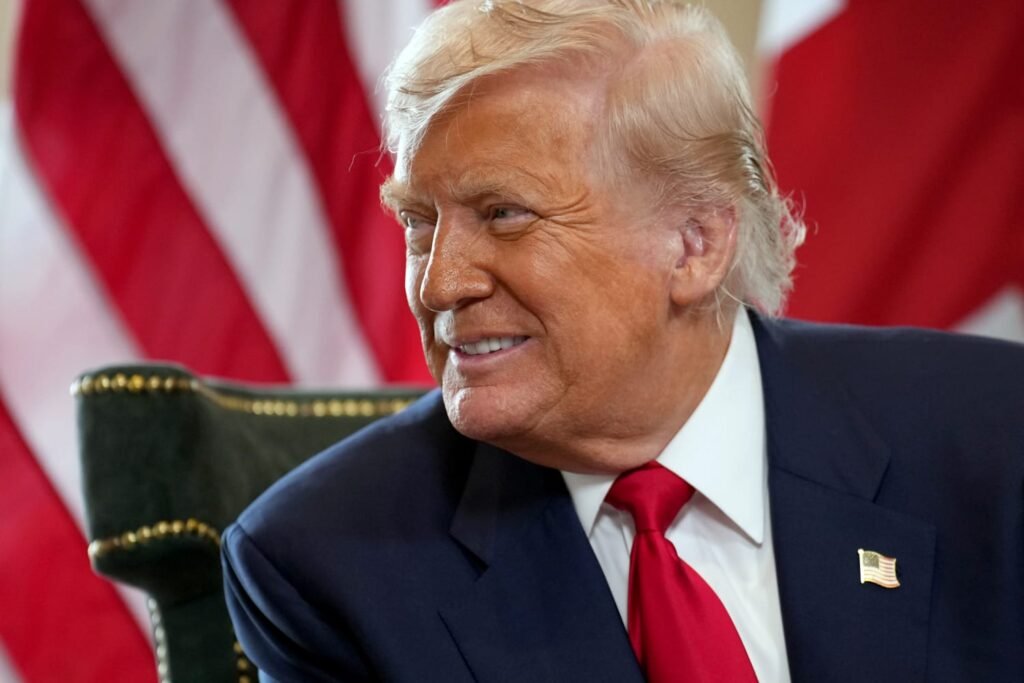Trump bond purchases are under fresh scrutiny after newly released disclosures revealed that President Donald Trump has bought over $100 million in bonds since taking office in January 2025. The scale of these investments, covering corporate, municipal, and government debt, has sparked debates over ethics, conflicts of interest, and the financial strategies of a sitting president.
What the Disclosures Show
A financial disclosure filed in August 2025 with the U.S. Office of Government Ethics revealed that Trump engaged in more than 600 bond transactions between late January and early August. The purchases span a wide range of issuers, from Wall Street banks to utility companies, as well as municipal governments and school districts.
The disclosure indicates that the total value of these bond purchases exceeds $100 million, though it does not break down individual transaction amounts. Among the issuers included are major corporations such as Citigroup, Morgan Stanley, Wells Fargo, Meta, Qualcomm, The Home Depot, T-Mobile USA, and UnitedHealth Group. Beyond corporate bonds, Trump also invested in municipal debt tied to local governments, counties, utilities, and public service projects.
How Many Purchases Were Made
Reports confirm that Trump executed between 600 and 700 bond transactions during the first seven months of his presidency. This represents an unusually high volume of financial activity for a sitting president, particularly given the variety of issuers and sectors represented in his holdings.
The large number of transactions highlights both the scale of Trump’s financial power and the challenge of tracking potential intersections between public policy and personal investments.
Why the Purchases Matter
Conflict of Interest Risks
The diversity of bonds in Trump’s portfolio raises concerns about conflicts of interest. Because these issuers may be affected by federal policy decisions, some ethics experts worry that Trump’s role as president could overlap with his personal financial interests.
Norms on Presidential Assets
Since the late 1970s, it has been common for U.S. presidents to place their assets into blind trusts. This practice separates personal wealth from political power. Trump, however, has chosen to retain ownership of his holdings, with oversight managed through a trust controlled by his children and external institutions. While legal, this approach does not fully eliminate concerns about transparency and impartiality.
Managed by Investment Firms
The White House has clarified that Trump and his family do not personally manage these bond purchases. Instead, the investments are directed by a third-party financial institution. Ethics officials certified the disclosure as compliant, though critics argue that the sheer size of the transactions still creates potential conflicts.
Diversification Strategy
Some financial analysts believe the purchases reflect a strategy of diversification. Bonds are considered more stable than equities or cryptocurrencies, and a large bond portfolio may serve as a hedge against volatility in other areas of Trump’s wealth, such as real estate, crypto, or licensing businesses.
Trump’s Broader Financial Picture
In addition to the bond purchases, Trump’s June 2025 disclosure reported more than $600 million in income from other ventures. His total assets are valued at a minimum of $1.6 billion, with some watchdog groups estimating that his cryptocurrency holdings could be worth billions more.

Trump has also held hundreds of municipal bonds in past years, with reported values ranging from $100 million to $330 million. These investments spanned projects across nearly every U.S. state, including infrastructure, energy, and education initiatives.
This broader context shows that bond purchases are not new for Trump, but the scale and timing during his presidency draw particular attention.
Political Implications of Bond Investments
Impact of Policy on Bonds
Bond values are influenced by interest rates, inflation, and fiscal policy. Critics argue that Trump’s personal investments might create an incentive to push for policies—such as lower interest rates—that benefit bondholders.
Supporters, however, counter that these purchases simply reflect prudent financial management. They argue that any president with substantial wealth will inevitably have investments that intersect with policy decisions.
Perception of Ethics
Even if Trump has no direct involvement in selecting the bonds, the perception of conflict remains significant. Past presidents avoided this dilemma by divesting assets or placing them in blind trusts. By retaining a large and active portfolio, Trump has reignited debates about whether the current ethics rules are sufficient.
Public and Expert Reactions
Ethics experts emphasize that compliance with disclosure requirements does not necessarily equal transparency. The large bond portfolio demonstrates how a president’s financial strategies can blur the lines between public service and private wealth.
Some critics argue that stricter laws are needed to prevent potential conflicts of interest in the presidency. Others believe that Trump’s situation highlights the importance of updating the ethics framework to match the realities of modern wealth management.
Meanwhile, financial analysts describe the purchases as a logical move for a high-net-worth individual seeking safe, steady returns in an uncertain economic climate.
Conclusion
The Trump bond purchases exceeding $100 million mark a significant development in the financial disclosures of a sitting U.S. president. The investments reflect both a strategy of diversification and a source of political controversy.
While the White House insists that these holdings are managed by outside institutions and comply with ethics rules, concerns remain over how personal wealth interacts with presidential power. As debates continue, the disclosures provide a rare glimpse into the financial strategies of a president whose wealth and political influence remain deeply intertwined.
Do Follow USA Glory On Instagram
Read Next – Elderly White Hippies Slams Sparks Political Firestorm






